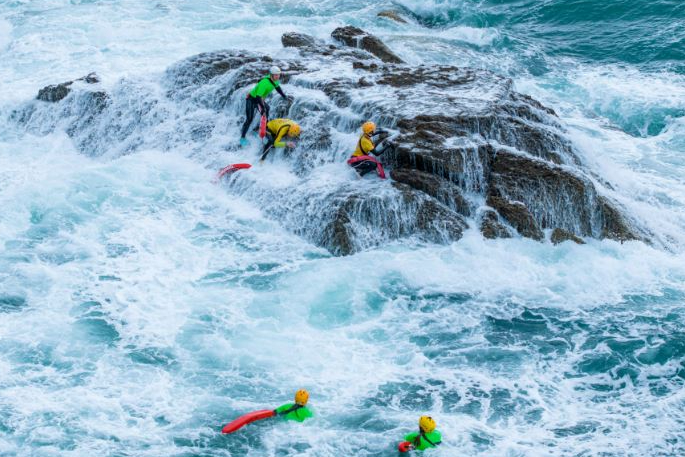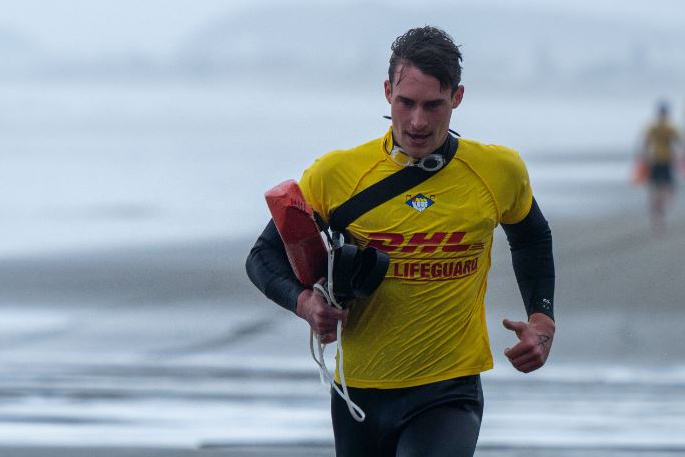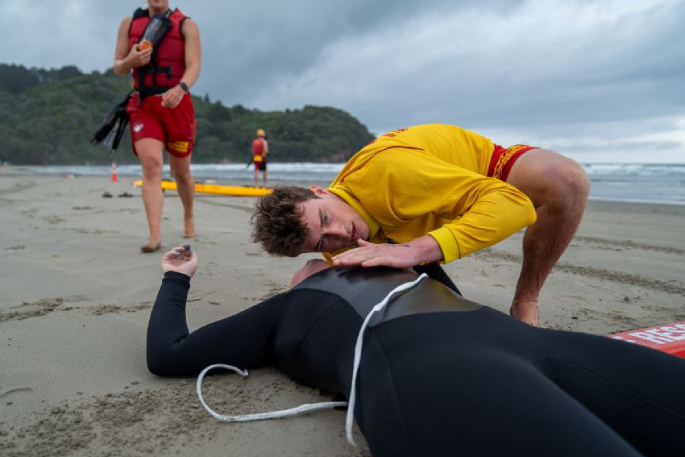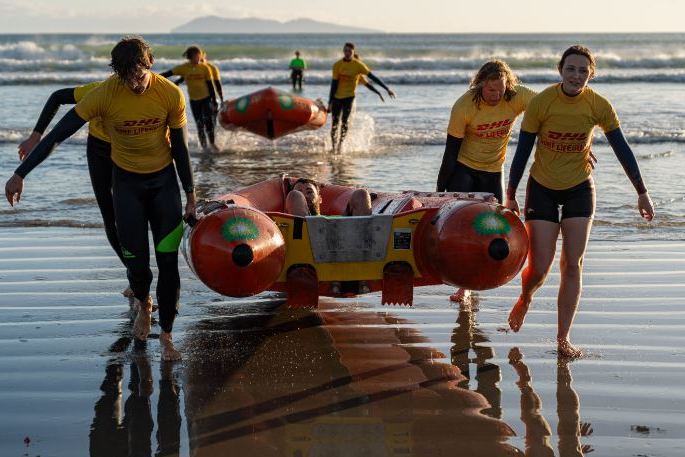Wild weather added another challenging dimension to Surf Life Saving New Zealand’s National Lifeguard School, testing the resilience and adaptability of surf lifeguards.
This year, 16 candidates were selected for the intensive three-day programme designed for the country’s fastest, fittest, and most committed surf lifeguards.
Held at Waihi Beach in the Bay of Plenty from November 30 to December 3, the school started under perfect conditions with clear skies and gentle waves.
This ideal weather set the stage for the initial sessions which included advanced inflatable rescue boat driving skills, first aid, patrol scenarios, stages of drowning, body recovery, and IRB night operations.
“The primary goal of the National Lifeguard School is to equip these surf lifeguards with the essential skills so they can respond effectively to any rescue situation they may face. They then take these skills back to their own Surf Life Saving clubs around the country,” says SLSNZ national education manager Belinda Slement.
“To make the most of this, during the three days, we try to cover a wide range of scenarios, day and night, to simulate different scenarios.”

However, Mother Nature decided to shake things up as the school progressed, bringing large surf and onshore winds.
This unfortunately led to seasickness among many team members during rock training and IRB patient rescue sessions.
“It was an intense few days for the candidates but that’s exactly what the school is for – it’s about preparing surf lifeguards for any situation, whether that’s under clear skies or rough seas.”
Wrapping up the school, the candidates had their fitness tested during a challenging run-swim-run, followed by a series of complex scenarios where they could apply their newfound skills.
Some of these included simulated first aid incidents, rock rescues, and patrol scenarios.
 Conor McDermott.
Conor McDermott.
“The candidates this year were fantastic,” says event manager Poppy Crouch.
“They gave it their all, coping with challenging conditions and long days.
“Behind the scenes, our remarkable team of instructors, mentors, and event staff managed logistics and water safety.
“A special mention must go to Waihi Beach Lifeguard Service for their generous hospitality. The school could not operate without these people, and we can’t thank them enough for their mahi.”
All candidates achieved SLSNZ’s highest surf lifeguard qualification - the Advanced Lifeguard Award.
Conor McDermott from Red Beach Surf Life Saving Club was named ‘Top Candidate’ for consistently demonstrating the attributes of an advanced surf lifeguard, including leadership, teamwork, diligence, tenacity, knowledge, skills, and physical ability.
 Conor McDermott in action.
Conor McDermott in action.
“During the school the highly respected instructors and mentors pushed us both physically and mentally,” says Connor.
“We experienced different first aid scenarios, rock rescues, and were taught advanced IRB driver manoeuvres. I’m excited to take these skills back to my Surf Life Saving club and to the Northern Region Paid Lifeguard Service. We can all develop and refine our surf lifeguarding skills, and this school is a great step in doing that.”
Next year’s National Lifeguard school will again be held at Waihi Beach.
“The SLSNZ education team works hard to continuously improve and evolve our material so that we deliver the best possible content to our surf lifeguards – we’re constantly aiming for that gold standard,” says Belinda.
“The 2023 candidates are now our new wave of top surf lifeguards, and we can’t wait to see who follows in their footsteps next year.”
The ultimate goal remains consistent – nurturing top-tier surf lifeguards capable of ensuring the safety of beachgoers, no matter the weather.



0 comments
Leave a Comment
You must be logged in to make a comment.